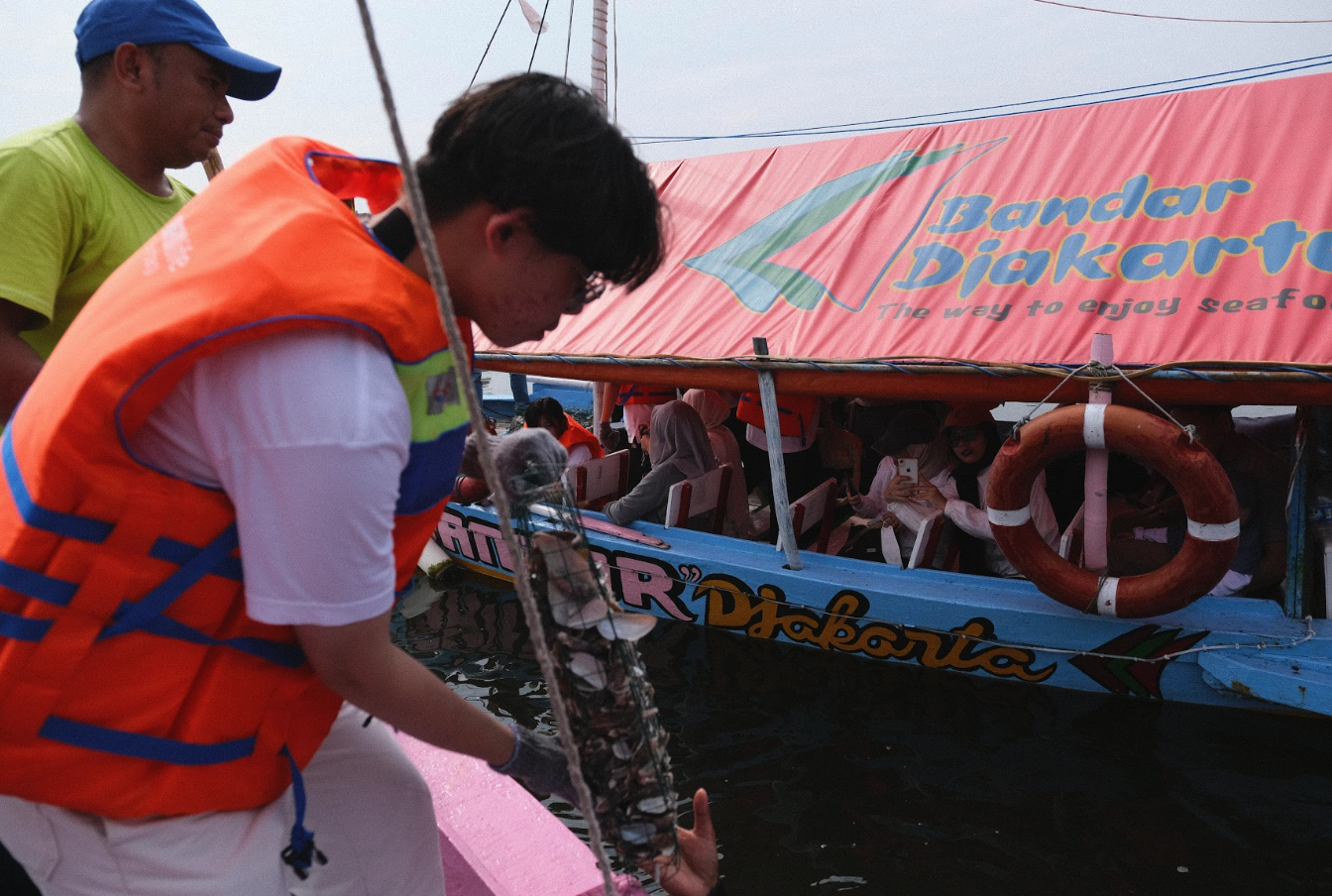
Rayden Yap
Granting Indonesia the Gift of Water Cleanliness
"Mommy, it's just a bottle. It doesn't matter."
The sun’s warm golden hue overlapped the waves across the shore. My serene evening was interrupted when a jarring sight caught my eye—a plastic bottle tossed carelessly onto the sand. I paused, watching as a small child, no older than six or seven, flung another piece of trash onto the ground.
The questions came flooding in.
Could I have properly thrown my plastic bottles away when I was younger? What about other students across Indonesia, whose lack of understanding may ripple into countless tonnes of plastic being sent into the ocean? Was our education for nothing?
When one thinks of beaches, one may think of their everlasting beauty and natural allure. Yet, as an accompaniment to Indonesia’s socioeconomic development, beach conservation suddenly dwindled as the coastal, brackish water teeming with wildlife became polluted with chemicals and oil residue and poison and wastewater, destroying the coral beds below along with any sliver of biodiversity.
An ensuing generation might not ever experience the sight of a clean river again.
With around 1500 schools in Jakarta alone, millions of students deserve the convenience and understanding behind our water. This motivational push led me to join Yayasan Karya Pelajar Mengabdi Bangsa (KOMIB), an organization dedicated to simple yet innovative approaches to water security.
We organized beach cleanups, starting with small, local initiatives, which expanded to rivers around Bandung and Jakarta, places heavily burdened by waste. Each cleanup was an eye-opening experience, not only for the participants but also for the communities we served. In 2022, our efforts culminated in a student-produced documentary capturing the stark realities of water pollution and the resilience of our volunteers.
However, cleanups alone aren’t enough: at the root of many water issues was waste management, a realization that led us to develop an initiative called Junkies.
Junkies started with a simple yet ambitious idea: an AI-powered waste sorting machine that could automatically categorize paper, plastic, and metal waste. This innovation aimed to tackle waste at the source, ensuring that it did not end up polluting our rivers and waterways.
We began collaborating with schools through educational programs about waste management, who not only benefited from education but also participated in renting the Junkies machines, integrating waste management into their daily routines.
Despite our successes, I realized that to address water security, we had to further attack the root of the problem. This epiphany came during a brainstorming meeting for Junkies. We were at a seafood restaurant when the sight of green oysters on our plates sparked an idea. These oysters, with their natural filtering capabilities, could be a potent source of water purification. Inspired by this discovery, we decided to pursue a dual approach: continuing our efforts with Junkies while also embarking on research into biological solutions for water purification.
Around this time, our achievements with Junkies earned us an invitation to the 10th World Water Forum in Bali, Indonesia. Determined to make the most of this platform, we vowed to enhance both our technological and biological programs, aiming to feature them prominently at the forum.
In the past month, I have had the immense honor of participating in several incredible encounters that redefined my view on water. One such moment occurred at the forum’s welcome dinner. I met Pak Fajar, a water resources management professor at Universitas Pertamina. As we discussed our ongoing projects, he suggested we reach out to Ancol, one of Indonesia’s largest beach and water recreation spaces, to explore a partnership focused on water restoration through green oysters. Intrigued by our green oyster research, Pak Fajar connected us with Ibu Evy, a professor with expertise in marine biology, who could provide further guidance and support.
Eager to seize the opportunity, I immediately contacted Ancol through various means, including social media and email. By the next morning, I received a positive response from Ancol. They were interested in collaborating but set a condition: I had to secure 50 volunteers for the initiative.
Without hesitation, we mobilized our network, launching a promotional campaign to recruit volunteers. The response was overwhelming, with the number of volunteers quickly surpassing our target. This outpouring of support highlighted the community's commitment to our cause and the effectiveness of our outreach efforts.
The collaboration with Ancol marked a significant milestone. We organized a series of water restoration events, integrating our green oyster research with hands-on conservation activities. Volunteers from diverse backgrounds came together, working alongside us to clean beaches and improve water quality. The success of this initiative underscored the power of community engagement and the importance of innovative approaches to environmental challenges.
As the Greek proverb goes, a society grows great when old men plant trees in whose shade they know they shall never sit. I may never experience a fully clean beach within my lifetime, but I am confident that my journey with KOMIB Indonesia reflects what young minds can achieve through engagement.





